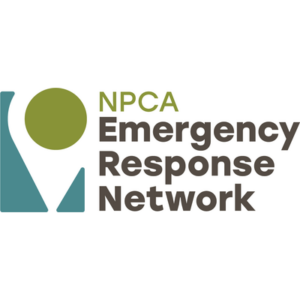 In a pioneer program for the country, Seattle and King County deployed a cohort of Returned Volunteers this fall. Now they have partnered with National Peace Corps Association to expand the role of the NPCA Emergency Response Network. And Returned Volunteers are wanted for contact tracing now.
In a pioneer program for the country, Seattle and King County deployed a cohort of Returned Volunteers this fall. Now they have partnered with National Peace Corps Association to expand the role of the NPCA Emergency Response Network. And Returned Volunteers are wanted for contact tracing now.
By Steven Boyd Saum
In response to the surge in cases of COVID-19, National Peace Corps Association (NPCA) and Seattle Peace Corps Association (SEAPAX) have put out an urgent call to action for Returned Peace Corps Volunteers to serve as contact tracers with the Seattle and King County Health Department.
In March 2020, as the COVID-19 pandemic spread across the globe, more than 7,300 Peace Corps Volunteers were evacuated from around the world. Multiple pieces of national legislation have called for the deployment of evacuated Volunteers as a group as contact tracers, but those have stalled in Congress.
Seattle and King County led the way with the first cohort of Volunteers serving as contact tracers as part of the new NPCA Emergency Response Network. Some of the Volunteers were evacuated this year, and some served in Peace Corps years before. They include retired health professionals. They served in countries including China and Morocco, Uganda and Uzbekistan, Albania and the Philippines. And they have been working seven days a week calling people who have been exposed to someone who tested positive with the virus.
Now King County is seeking to expand the program.
Dedication and Purpose
Renowned infectious disease expert Dr. Anthony Fauci offered words of encouragement and inspiration to the first cohort of contact tracers. “I am a longstanding admirer of your passion and dedication to a purpose greater than yourselves,” Dr. Fauci told the Returned Peace Corps Volunteers. “I am profoundly grateful for your resilience and your adaptability that has enabled you to transfer your skills and commitment to this urgent need in our country to get the COVID-19 pandemic under control.”
Dr. Peter Kilmarx, deputy director of the Fogarty International Center at the National Institutes of Health, welcomed the first cohort of Peace Corps contact tracers by Zoom. With decades of experience working with the Centers for Disease Control and Prevention, Dr. Kilmarx served as a Peace Corps Volunteer in the 1980s in Democratic Republic of Congo, then known as Zaire.
“Done right, contact tracing is very effective,” Dr. Peter Kilmarx told the Volunteers.
“Done right, contact tracing is very effective,” Dr. Kilmarx told the Volunteers. “In New Zealand, contact tracers brought the average time from onset of illness to isolation from 7.2 days in March, to negative 2.7 days in April. That means that on average, cases were isolated 2.7 days before they fell ill, and local transmission in New Zealand dropped to zero.”
Dr. Kilmarx also noted that efforts go back months to involve more returned Volunteers in contact tracing. “If you ask me, ‘What makes a great contact tracer?’ I would say, ‘A Returned Peace Corps Volunteer,’ or anyone with that kind of resilience, cultural competence, and a spirit of service to the community.”
Dan Baker directs the Global Reentry Program for National Peace Corps Association, an initiative brought online quickly earlier this year to assist evacuated Peace Corps Volunteers, and now serving Returned Volunteers more broadly. He is fielding applications for the contact tracing positions, and he notes: “We are open to interest and applications from all states, but especially Washington state.”
Returned Peace Corps volunteers who are interested in serving as contact tracers should email [email protected] or call Dan Baker at National Peace Corps Association at (202) 934-1534.
Find out more about the NPCA Emergency Response Network here.